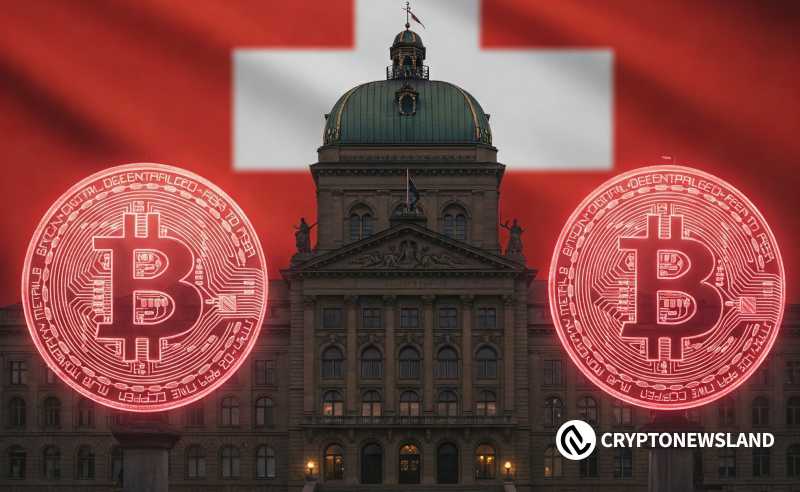
Swiss National Bank declines Bitcoin in reserves and favors assets that are stable and easy to trade.
A Swiss constitutional initiative seeks to make Bitcoin a mandatory part of the national reserves by 2026.
Global approaches to Bitcoin reserves differ as Switzerland remains cautious despite growing international support.
The Swiss National Bank (SNB) has declined proposals to add Bitcoin (BTC) to its foreign reserves. At the annual meeting held in Bern on April 25, Chairman Martin Schlegel explained the bank’s decision. He said the SNB requires assets that are easy to trade and stable in value. According to the SNB, Bitcoin and other cryptocurrencies do not meet these requirements.
https://twitter.com/Reuters/status/1915830719412129829
According to Schlegel, the volatile price movements together with problems in crypto market liquidity prevent cryptocurrencies from being suitable as a reserve option. The Swiss National Bank intends to rely on traditional assets including foreign currencies and gold in building their reserves moving forward. Switzerland maintains a conservative attitude toward blockchain adoption although it remains prominent in blockchain development.
Proposal Aims to Change Swiss Constitution
A new political initiative seeks to require the SNB to include Bitcoin in its reserves alongside gold. The Swiss Federal Chancellery officially approved this proposal on December 31. The plan targets Article 99, Paragraph 3 of the Swiss Constitution, seeking to add the words “and in Bitcoin.”
A group of ten well-known crypto advocates is leading the campaign to gather public support. Key figures in this movement include Yves Bennaïm, founder of 2B4CH, and Giw Zanganeh of Tether. The campaign must collect 100,000 valid signatures by June 30, 2026, to force a national referendum.
Crypto Supporters Emphasize Bitcoin’s Strategic Role
Supporters of the proposal argue that Bitcoin could protect Switzerland’s reserves during times of global financial instability. They believe Bitcoin’s decentralized structure could prove valuable if trust in government debt weakens worldwide. However, they admit that Bitcoin’s role during normal financial conditions would remain limited compared to traditional assets.
The growing acceptance of cryptocurrency in other countries has encouraged Swiss Bitcoin advocates. They point to the increasing support for crypto policies in the United States as a positive sign.
Past Efforts and Current Reserve Strategy
A similar initiative to add Bitcoin to the SNB's reserves failed in 2021. Nevertheless, supporters believe changing global conditions may improve their chances this time.
The SNB currently manages over $900 billion in reserves. Most of the holdings are in foreign currencies, such as the U.S. dollar and Japanese yen. The bank also maintains around $94 billion in gold reserves. Despite the growing popularity of Bitcoin, the SNB shows no signs of moving away from traditional strategies. The institution remains focused on preserving the stability and liquidity of its assets.
Global Differences on Bitcoin Adoption
International views on Bitcoin as a national reserve asset remain divided. South Korean presidential candidate Hong Joon-pyo has promised to support blockchain development and relax crypto regulations. His plan would invest $35 billion into emerging technologies, with blockchain as a major focus.
In contrast, Japan and the European Central Bank maintain cautious positions toward Bitcoin. European Central Bank President Christine Lagarde has firmly rejected adding Bitcoin to central bank holdings. As cryptocurrency adoption grows worldwide, countries continue to take different approaches to Bitcoin in national reserves.

